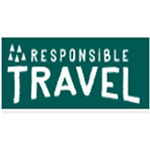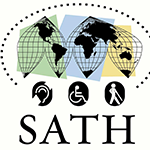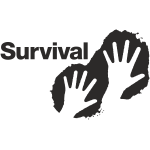
Discover which business processes add value to your travelers.

Processes
20 Questions for identifying Business Processes for the achievement of Outstanding Results
Key to Success
In this section, we would like to make sure that Small and Medium-sized Tourism Enterprises (SMTEs) should be aware of the following:
- The various processes involved in delivering tourism products and services, including booking, check-in, and traveler service procedures, can affect travelers’ perception of the business.
- The most critical process efficiency and effectiveness in delivering high-quality tourism products and services improve the quality of their offerings to enhance the Traveler experience.
- The role of technology in improving tourism processes includes automating and optimizing procedures, reducing costs, and improving the speed and quality of traveler service.
Accomplishments
- Identify which activities are essential to creating and delivering traveler value.
- Highlight which activities are critical to making our business work.
- Find our critical procedures and most efficient processes to get:
- Our Unique Value Proposition (UVP)
- Our Unique Selling Proposition (USP)
Time-Saving Tools
We’ll complete all sections of this chapter more quickly if we have any of the following handy:
- The tourism destination market plan and strategic plan.
- Tourism road maps offered by the tourism destination
- Our value proposition description.
- Our Unique Selling Proposition description.
- Our business road map.
- All our macro processes map.
- Our business road map.
- All documents could be applied to find relevant information.
Presentation
Small and Medium-sized Tourism Enterprises (SMTEs) focus on integrating responsible practices that minimize their environmental impact, foster sociocultural preservation, and contribute positively to the local economy. Business processes for sustainable tourism enterprises encompass a range of strategies and practices to achieve long-term viability while protecting the ecological and cultural integrity of the destinations they serve. By prioritizing sustainability in their operations, these enterprises contribute to the well-being of the destination and its inhabitants and attract environmentally and socially conscious travelers who value responsible tourism practices.
Here are some important things to keep in mind when thinking about processes:
- Streamline processes: Small and Medium-sized Tourism Enterprises (SMTEs) should look for ways to streamline their procedures and eliminate inefficiencies. This includes automating tasks, reducing paperwork, and creating standardized procedures for routine tasks.
- Focus on the traveler: This means designing traveler-focused practices and creating a positive experience for travelers. This includes streamlining booking and check-in practices, providing clear and timely communication, and offering personalized recommendations and experiences.
- Train staff: Small and Medium-sized Tourism Enterprises (SMTEs) should invest in training and developing their team to ensure we have the skills and knowledge needed to provide excellent service to travelers. This includes training in traveler service, safety and security, and local knowledge and expertise.
- Monitor and evaluate processes: Small and Medium-sized Tourism Enterprises (SMTEs) should regularly monitor and evaluate their procedures to ensure we are effective and efficient. This includes gathering traveler feedback, tracking metrics such as booking and occupancy rates, and making necessary adjustments.
- Use technology: Technology can be a valuable tool for Small and Medium-sized Tourism Enterprises (SMTEs) to streamline practices and enhance traveler service. This includes using online booking systems, mobile apps, and social media to connect with travelers and manage operations.
In conclusion, by focusing on these aspects of their activities, Small and Medium-sized Tourism Enterprises (SMTEs) can improve their efficiency, enhance the Traveler experience, and ultimately grow their business in the competitive tourism industry.
GUIDING QUESTIONS
How can we promote responsible and sustainable practices throughout our processes? Implementing eco-friendly initiatives and supporting local communities will contribute to small tourism enterprises' long-term success and reputation within our practices.
YScala
A suggestion of guiding questions that are not intended to exhaust the topic:
- What activities do travelers perceive and recognize as added value for them?
- What are the activities that generate business advantage?
- What are the practices that generate traveler engagement?
- What are the practices that guarantee the effectiveness of our sales?
- What social responsibility criteria will we adopt when selecting our business supply chain partners?
- What are the practices that help us achieve strategic objectives?
- What are the activities that generate revenue?
- What are the critical processes in our business, and how are we currently performing? Do we understand our critical practices for creating and delivering traveler value?
- How do we currently handle traveler inquiries, bookings, and payments, and how can we make these activities more efficient and user-friendly?
- Which procedures are the most time-consuming or resource-intensive? How can we streamline them?
- How can we use technology to automate or improve our activities?
- How can we ensure our staff has the skills and knowledge to provide excellent traveler service?
- How can we ensure our staff has the skills and knowledge to provide excellent traveler service?
- What would our business look like if we completely removed the most expensive activity in our value chain?
- Which procedures are most visible to our stakeholders?
- How do we monitor and evaluate our activities, and how can we improve this?
- How can we use traveler feedback to improve our practices and traveler service?
- How can we use data and analytics to track our performance and identify areas for improvement?
- How do we manage inventory and supplies, and how can we optimize these activities to reduce waste and save money?
- How can we ensure our activities comply with relevant laws and regulations?
Offering more information
Besides the 20 guiding questions we’ve provided to help us evaluate and improve our processes, we’ve compiled a list of valuable resources to further our knowledge and understanding of business processes. Notably, these resources offer insights into best practices, sustainability, marketing, and more, catering to the needs of tourism professionals and stakeholders. Consequently, by exploring these links, you’ll be better equipped to make informed decisions and create a thriving, competitive, and sustainable destination for travelers from around the world.
- This article discusses best practices that tour operators should optimize: reservation management, communication with customers, supplier coordination, staff management, and reporting.
- This article discusses ways to improve efficiency in tour operator businesses, emphasizing the importance of streamlining booking processes, using technology to automate tasks, and optimizing staff scheduling to enhance overall operations.
- This post provides five tips for improving tour operator business operations, covering areas like automation, inventory management, customer communication, and staff training to ensure smoother and more efficient processes.
As you conclude reading this orientation post, we’d like to invite you to explore the other insightful articles in our Business Tailor 4 Sustainable Tourism Develop Management Tool (BT4-STDM) blog. We invite you to engage with our community, share your perspectives, and contribute to this meaningful conversation by commenting below. Your experiences and ideas can help others in their sustainable tourism development management journey.
Let your like and recommend this post to improve your audience!
Share this post with friends, colleagues, or anyone else who might be interested.
Comments:
We invite you to engage with our community, share your perspectives, and contribute to this meaningful conversation by commenting below. Your experiences and ideas can help others in their sustainable tourism development management journey.













